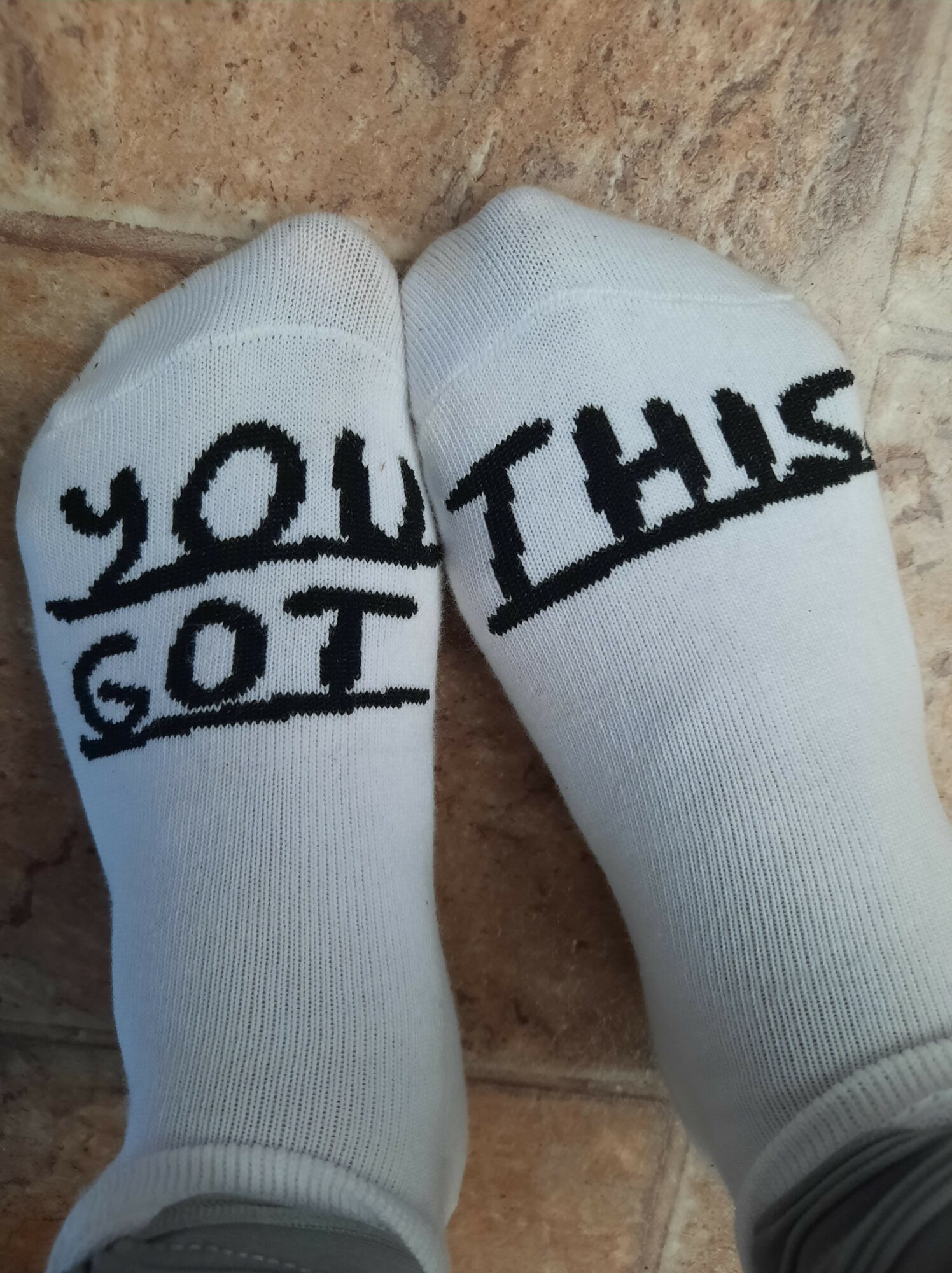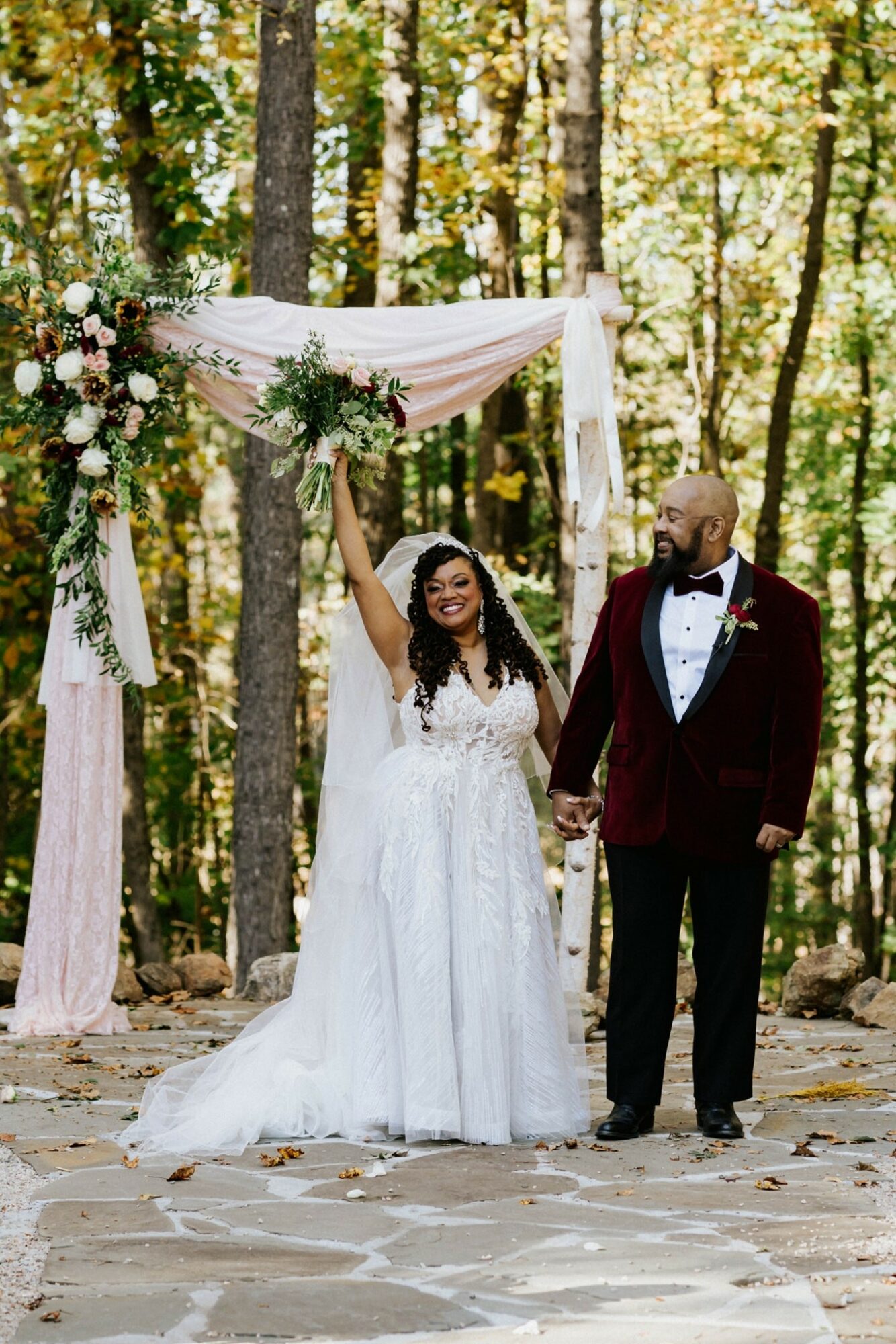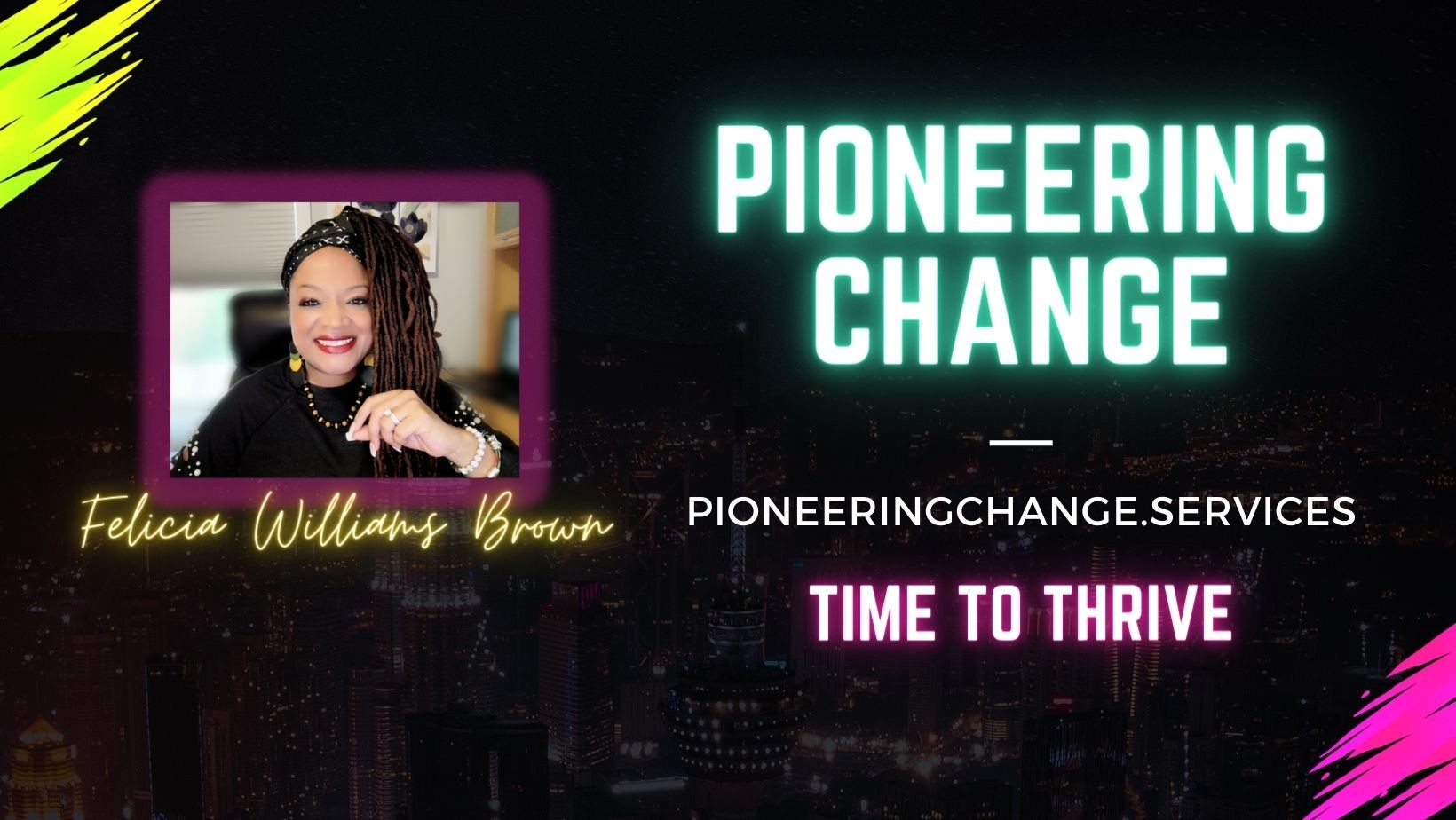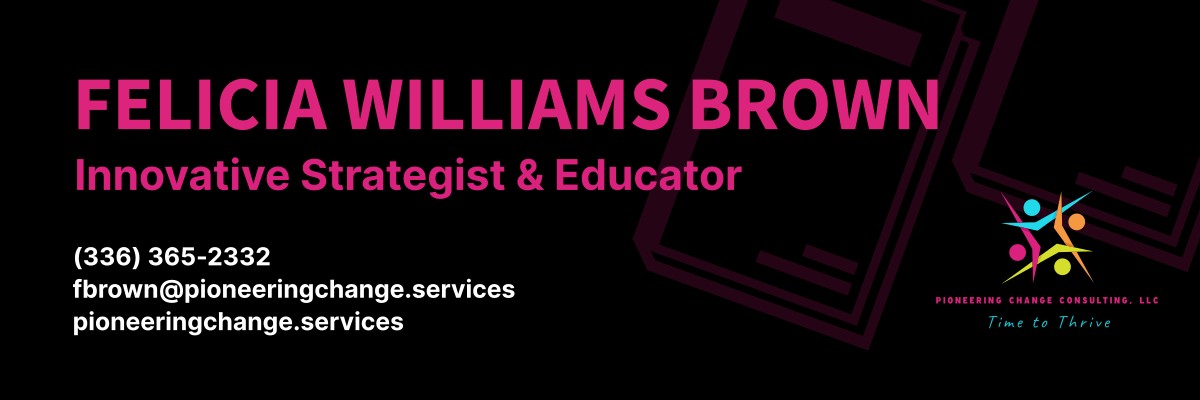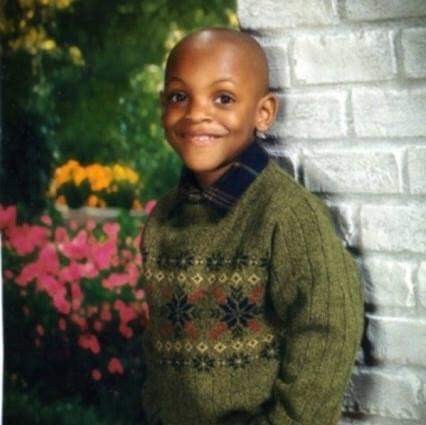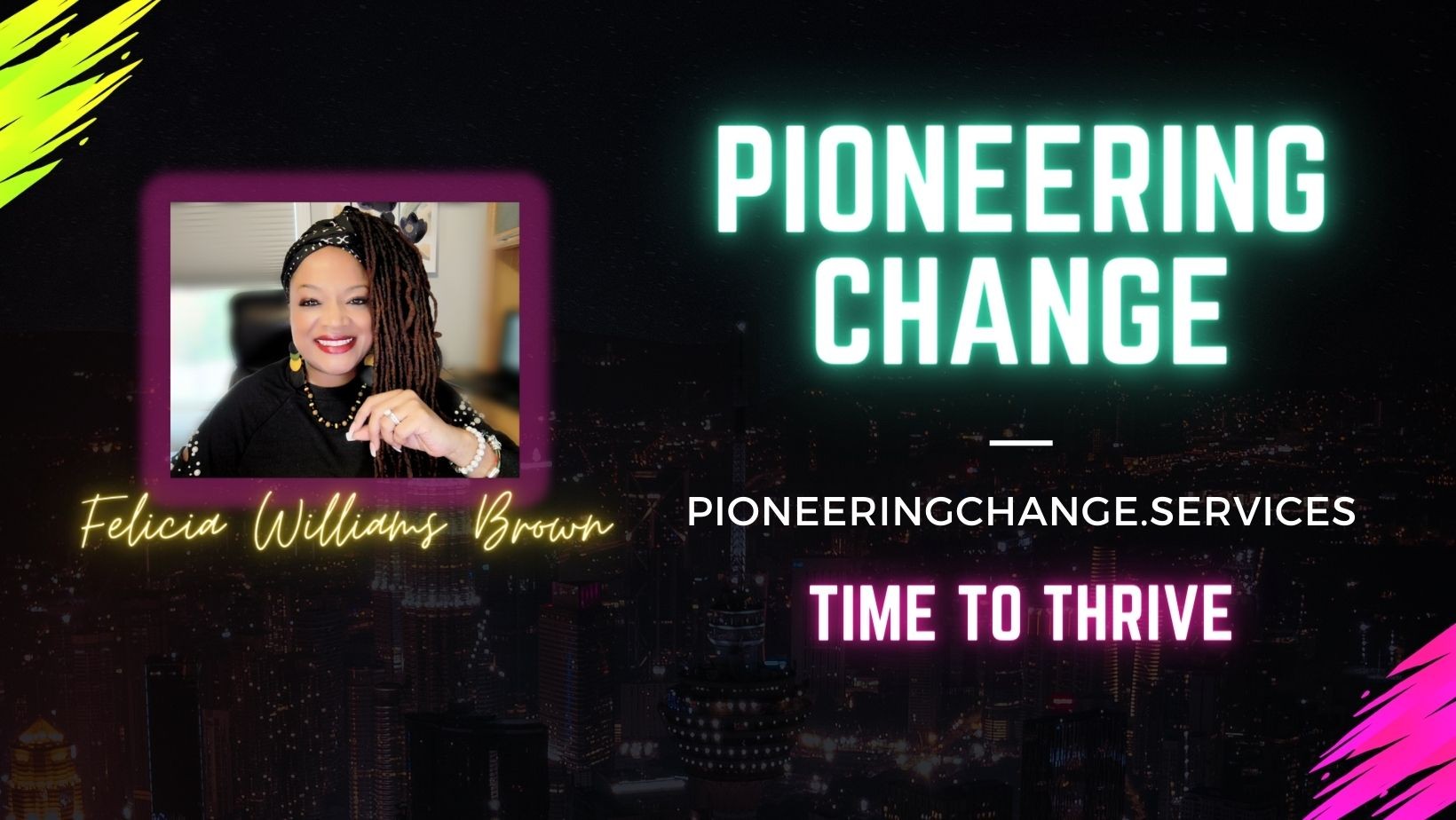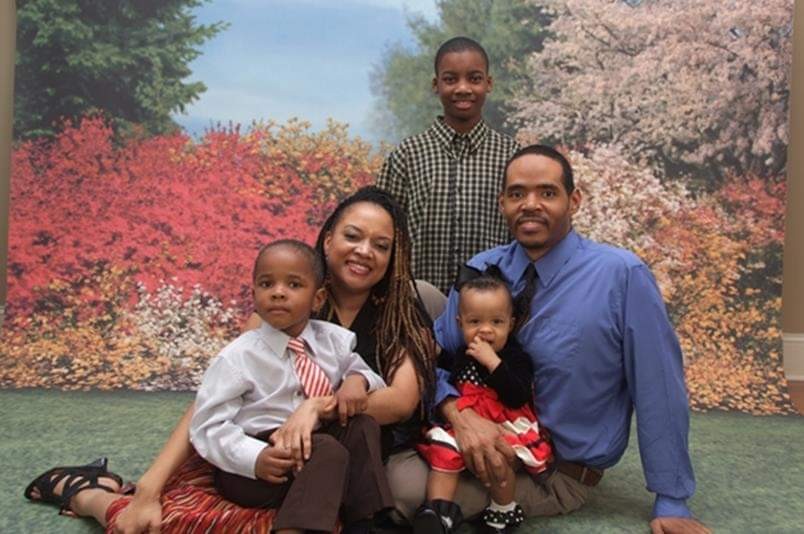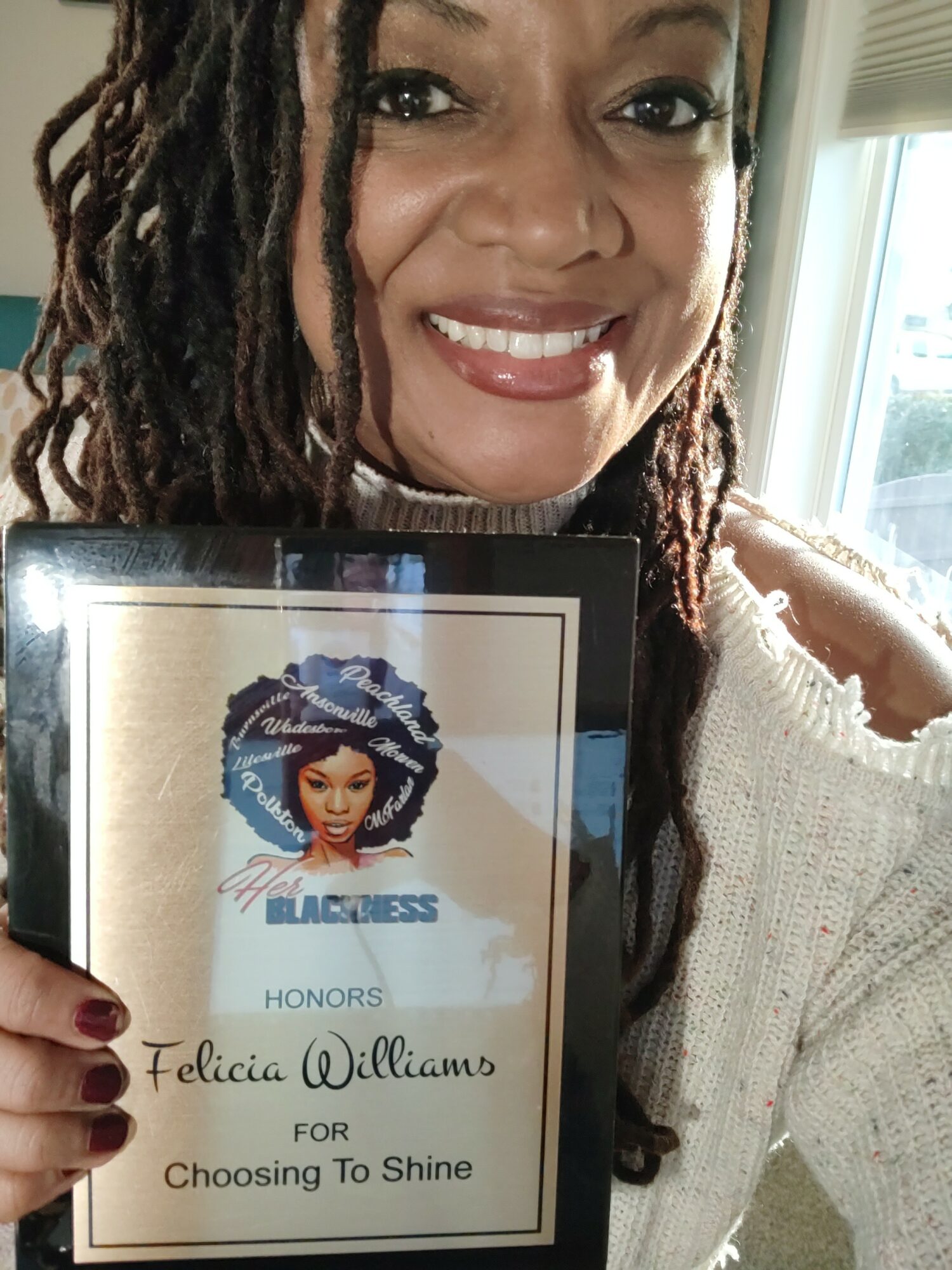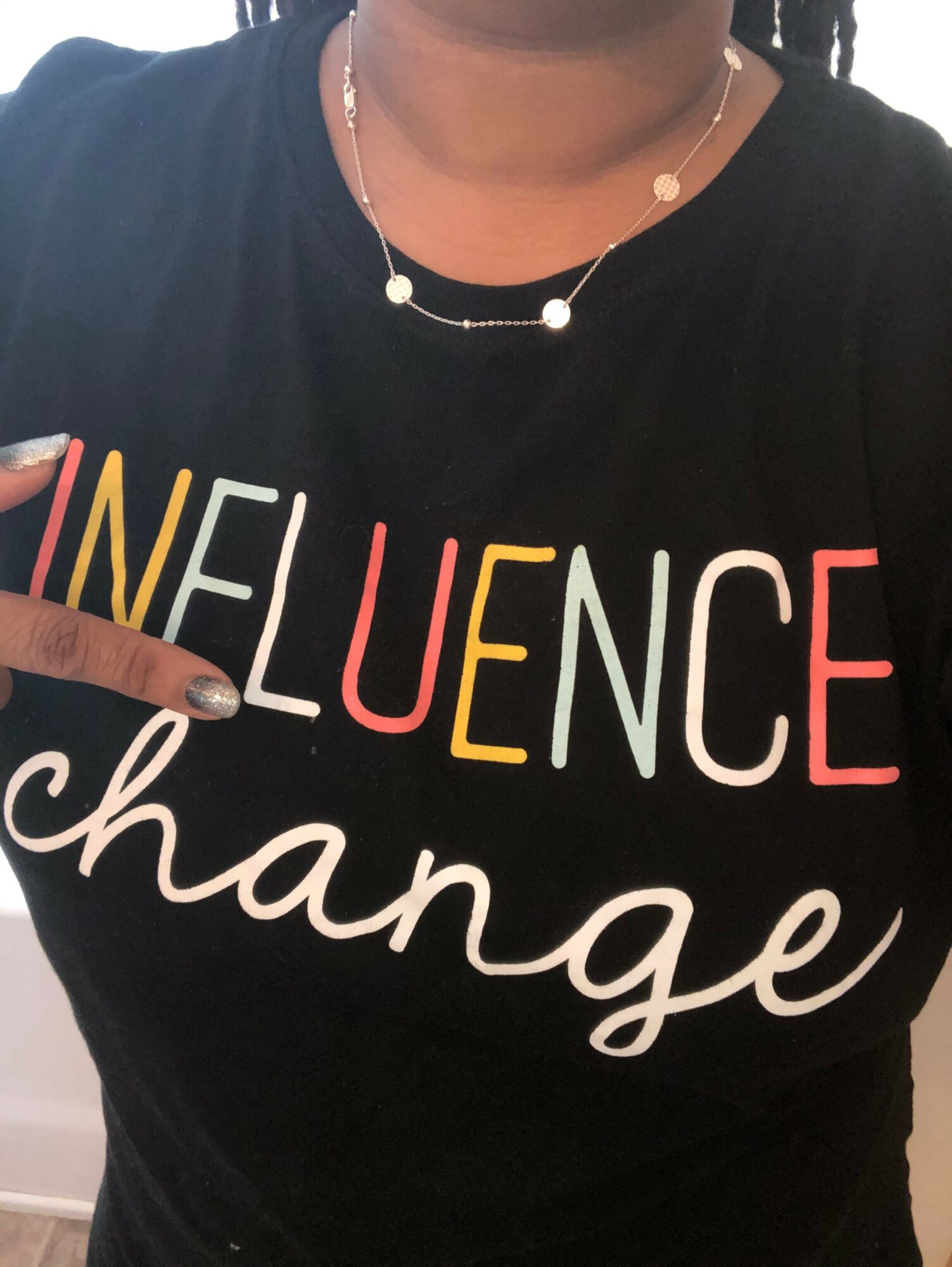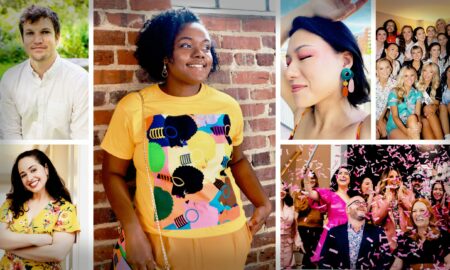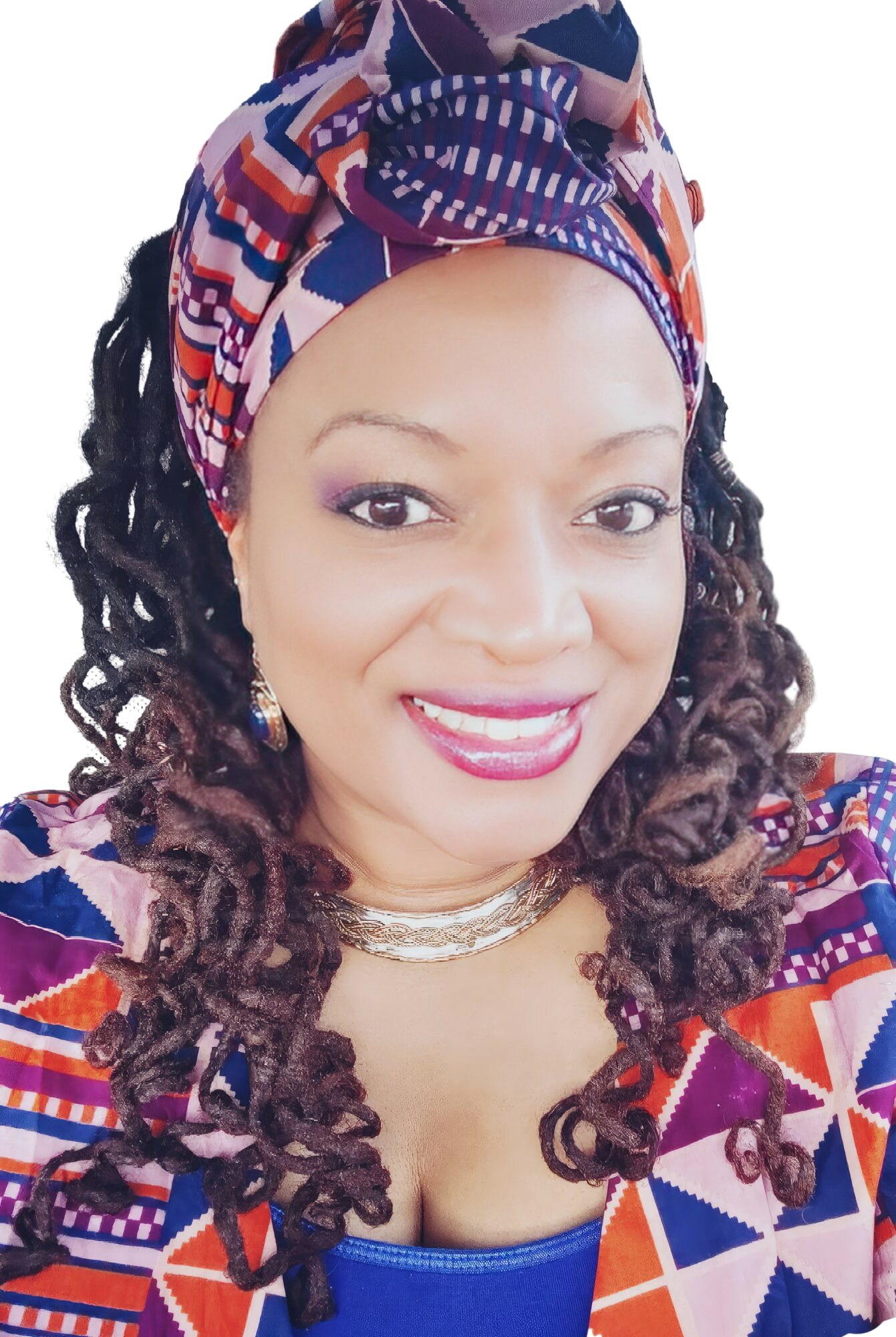
Today we’d like to introduce you to Felicia Williams Brown.
Hi Felicia, can you start by introducing yourself? We’d love to learn more about how you got to where you are today.
My name is Felicia Williams Brown, and I am an abolitionist for trauma, grief, and those impacted by intellectual developmental disabilities. My journey began in the early 2000s when I was diagnosed with PCOS and struggled with conception and pregnancy. My husband and I always dreamed of having a family, and after trying to conceive for 7 years, we thought it was time for professional intervention. I remember being so excited about the prospects of being a mother but was not prepared for the emotional impact of fertility treatments. I gained a massive amount of weight, experienced ectopic pregnancy, miscarriages, and I felt like a walking science project. I prayed, and I hoped, but I could not endure the emotional distress. I detested my body, and I wrestled with my self-worth. My husband was empathetic to my struggles, and we considered adoption instead. It took a minute to pivot, but once we took the steps to become adoptive parents, things progressed quickly. We received notice of two beautiful little boys needing a home. They were biological brothers, and they needed a family to accept them both. We did not hesitate. Although we didn’t have things set up for them, we couldn’t turn them away. I absolutely loved being a mother, and we fully embraced being parents. It was tough because we went from being inexperienced parents to becoming therapeutic parents, but it was my dream come true. We fostered the boys for two years and expanded from managing the struggles associated with the foster care system, but time came, and we were finally able to finalize the adoption.
Our family was finding its way. Things were going well until they weren’t. Unexpectedly, our youngest son died at the tender age of 6. Talk about traumatic. I could not understand it. Why did this happen? It didn’t make sense to me at all. We had no idea what caused his death. Six agonizing months after his funeral, his autopsy report indicated the cause of death was myocarditis. Myocarditis? After months of confusion, anxiety, self-blame, depression, insomnia, and anguish, how could a virus silently attack my son’s heart and take him away with no warning? We were devastated, and I was never the same. I was paranoid about germs. I was stricken by depression and grief. I was shaken from my core. And I could no longer see the world from the lens of rainbows, unicorns, and lollipops.
The luster I had for life was abolished, but I still had to live, somehow, with this new reality. Our oldest son needed us, and he was my primary reason to continue to push forward in a life that was forever altered. It was hard to function in our new reality, and it took some major adjusting. We eventually found a new rhythm, but it was permanently overshadowed by the grey that now marked our lives.
Years went by, and I gave birth to a beautiful baby boy. I considered him to be a miracle baby, so I was shocked when my daughter came along a couple of years later. We were elated to be blessed in this way and were grateful to have more children to love. Unfortunately, we had more obstacles headed our way.
Two months after my daughter was born, my birth son was diagnosed with Autism. It was extremely difficult and overwhelming trying to learn all the things and do all the things while trying to reconcile my feelings of sadness and self-blame. There was no one in our family or anyone we knew in our culture that had a child with Autism, so my husband and I had to navigate this new world alone. We also had to become trailblazers advocating and educating in the midst of being judged and ridiculed by society. There were many tearful moments, but we learned to embrace the fact that we were a non-traditional family. We were unconventional, and that was okay. It no longer mattered what others didn’t understand. We had to figure out our process. Our process worked for us, so everyone that took issue with had to accept it or move on.
We fared well for a while, and yet again, the unimaginable happened. My husband passed away less than a month before our 25th wedding anniversary. He was 45 years old and died from a traumatic brain injury. Prior to his death, I spent months in the hospital with him trying to manage the conflict of my faith and the struggles with ambiguity. When I knew it was time to say goodbye, I never imagined losing him this way, and I didn’t know how I could ever come to grips with the magnitude of this loss. It was unfathomable, and I struggled to understand it.
It seemed unfair, and I was stricken by grief. I already had my fair share of obstacles and pain. How much more could I take? We grew up together. He was my friend, and he was the one person that knew the depths of our journey. I loved him profoundly, and now I was all alone. I was now a widow, left to figure out how to hold my family together while trying to hold myself together. What a tragedy. My days were reduced to living minute to minute just to get through it all. I did the best I could, and I will tell you from personal experience there’s no pain like putting a child and a husband in the ground and having to face the life that’s left behind.
Although I have experienced lots of trauma, grief, and challenges in my life, I still had some highlights to embrace. With my limited outlook at the time, I imagined my life being forever governed by survival and sadness. I thought I would only be a widow crying in my closet every night while living the rest of my days primarily as a mother to my children. I reduced myself to a widow who happened to also be a special needs mom. It’s all I could conceptualize, but there was more in store for my life, and it was more beautiful than I could ever imagine.
My life is now in rebirth mode granting me a new opportunity to connect with myself and the world. I have been blessed with tools and resources which helped me to face my shadows, work through the brokenness I carried and the losses I experienced. It was excruciating and still is at times. However, I did the work, and my life was matched with some heartfelt rewards.
A reward I cherish so deeply is my newfound love. I am now remarried, and I never imagined I would experience true love again. We found each other in the most unexpected time. We both endured some amazing challenges, but we both somehow felt the need to keep trying in our lives. Once we found each other, we knew that our connection was divinely inspired, and we wasted no time aligning our lives to reflect our union. I really didn’t see it coming. It was brave, it was scary, and it was life-changing and life-giving. This love has given me the confidence to live life in a whole new way.
Another beautiful gem from my life’s journey has been the way it has informed my professional life. I have been an active community advocate for individuals with intellectual and developmental disabilities (IDD) for a long time now, and I collaborate with service organizations, steering committees, and various local community groups to improve programs and encourage inclusion for individuals with IDD. I am a certified Community Health Worker, a Charting the LifeCourse Framework Ambassador, a certified trainer for Adult Mental Health First Aid, a Sexuality Educator for Individuals with IDD, a certified facilitator for the Wellness Recovery Action Plan (WRAP), a certified instructor for HealthMatters and a certified facilitator for QPR Suicide Prevention. I am involved with numerous community projects, and I am a UNC LEND fellow, a prestigious leadership program for North Carolina Leadership Education in Neurodevelopmental and Related Disabilities (LEND) at the CIDD that provides interdisciplinary leadership training at undergraduate, graduate, and postdoctoral levels, as well as interdisciplinary services and care. At the Autism Society of NC, I enjoy my work as a Connection & Resource Specialist, where I support the autism community via social media, connecting them to services and helping with system navigation. Doing this type of meaningful work on a professional level is so fulfilling.
I am also the founder of Pioneering Change Consulting, LLC, and I am an Innovative Strategist and Educator. Because my life uniquely connects me to the communities for IDD, trauma, and grief, this step truly aligns me with my passion to educate and assist others. Many individuals suffer but don’t seek help due to stigma. Many individuals lack awareness and need guidance on how to be well and stay well. Many caregivers feel unsupported, and many professionals that serve the IDD community feel insufficient to do their work well. I know personally what these challenges are like, and Pioneering Change Consulting was created to meet those needs by empowering people to overcome the obstacles that they face. Through PCC, I offer training such as Mental Health First Aid, QPR Suicide Prevention, Sexuality Education for the IDD Community, and WRAP (Wellness Recovery Action Plan) training for Caregivers. These trainings are effective and are an impactful way to support those facing burnout, grief, mental health challenges and those who serve and support someone with IDD. I understand the complicated feelings of being an IDD caretaker, a support professional, or a person living with vulnerabilities, and my goal is to help everyone feel heard, supported, recognized, respected, and equipped by using live workshops, online courses, and other influential tools to assist with concerns.
Can you talk to us a bit about the challenges and lessons you’ve learned along the way? Looking back, would you say it’s been easy or smooth in retrospect?
Highlighted below is an outline of my life’s challenges. What I’ve learned is that even in the darkest times, you can rise up and shine again. It has not been easy. I have the emotional scars to prove it. But I am a better person by far, so essentially my pain has blessed me.
Grief- Death of a child, Death of a Spouse, Loss through ectopic pregnancy and miscarriages
Mental Health Challenges – Depression, Anxiety, Survivor of Narcissistic Abuse, Post Traumatic Stress Disorder, Burnout and overwhelm
Special Needs Parent – Son with Autism, Therapeutic Foster/Adoptive Parent
Medical Challenges – PCOS
Great, so let’s talk business. Can you tell our readers more about what you do and what you think sets you apart from others?
Pioneering Change Consulting (PCC) aims to cater to the requirements of vulnerable communities, including those affected by mental health challenges, trauma, grief, and the intellectually disabled. To achieve this goal, PCC offers a range of services such as training, workshops, self-paced online courses, coaching for caregivers and families, and consulting for organizations or providers working with these communities. As someone who has firsthand experience in these areas, I take pride in being a brand that addresses important areas of vulnerability within the community.
At PCC, we provide Wellness Recovery Action Plan training to caregivers. Although this training has been primarily advertised to individuals in recovery, its informative content and guiding principles can also be useful resources for caregivers who are dealing with mental health challenges, burnout, and overwhelm. We offer this training to parent groups, support groups, and individuals who want to maintain their well-being in the face of life’s difficulties as a special needs parent.
To provide the community with the necessary skills to recognize and assist individuals experiencing mental health crises, PCC offers Mental Health First Aid and QPR Suicide Prevention Training.
PCC provides training to promote meaningful health relationships and support diversity inclusion for the IDD and LQBTQI communities. The training covers sexual development, sexual self-advocacy and reduces the risk of exploitation and abuse. It is suitable for professionals, parents, and individuals.
Do you have any advice for those just starting out?
At times, we tend to overthink, which causes psychological barriers that prevent us from standing tall in our own space and keeps us from utilizing our abilities for the benefit of others. When the spotlight is on you, it may feel uncomfortable. Be it the feeling of being a fraud, self-destructive behavior, lack of confidence, or a fuzzy perspective, do not allow these hindrances to obstruct your progress. You can stand tall and show up for yourself.
Allow the challenges in your life to fulfill their role and lead you. Dare to take a chance and have faith in yourself. Taking a risk on you is the only way to confirm that you possess the necessary skills and abilities which were within you all along.
Things started happening so fast that I couldn’t keep up after I stopped hindering myself. Transform fear and rejection into allies for personal growth instead of seeing them as your enemies. Although this new thing may feel unfamiliar, once you become accustomed to how you have expanded, you will feel more at ease with your new identity and the new opportunities it bring. Remain patient and embrace the discomfort until you become proficient in this new phase of life.
My story could have easily been primarily a story of hopelessness and despair. I am proof that there is life after loss. If I can rise from the ashes and use my scars to affirm my strength to benefit others, so can you.
Contact Info:
- Website: pioneeringchange.services
